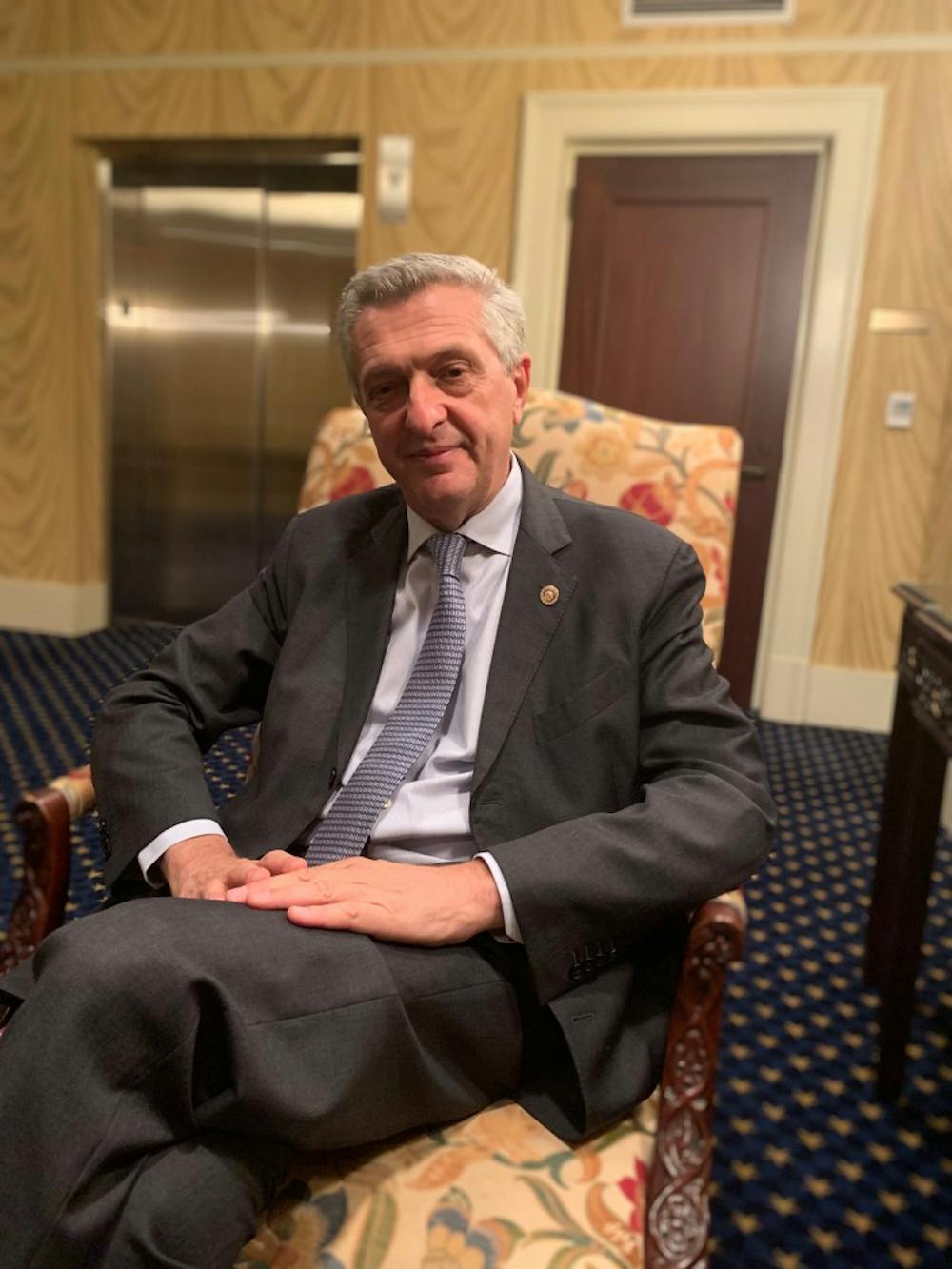He has led emergency operations in Kenya, Benin, Ghana, Liberia, Central Africa, Yemen and Afghanistan. He has conducted refugee and humanitarian work for over 30 years. And on Thursday, Sept. 19, Filippo Grandi, the United Nations High Commissioner for Refugees, came to UNC to discuss the global refugee crisis.
Grandi responded to questions posed by Susan Stigant, a UNC graduate and the director of Africa Programs at the United States Institute of Peace. Grandi discussed his career, trends within refugee movements and ways to address complex issues surrounding displaced persons.
Grandi said short-term responses to refugee crises are not enough.
“Food, shelter, medicine: very important, very vital. We need to continue to do that, but they’re not quite enough,” Grandi said. “We realized – for example, in the Syria situation – that there were millions of children that were missing out on their education because these humanitarian investments prioritized the life-saving sectors and neglected what was longer-term.”
Grandi also recommended that refugees be welcomed into local communities. He said support efforts should help these communities’ health, education and job systems accommodate refugees.
“We understand that in the past it was practical to put refugees in a camp, assist them there – waiting for them to go back,” Grandi said. “But when they have to be there 15 years, 20 years – that’s not a life. Life in a camp is not a life.”
Grandi said refugees are too often scapegoated and over-politicized. Part of his work is reminding the public that refugee crises are also about individual people.
During a trip sponsored by UNC Hillel, Sophomore Sheel Patel spoke to Palestinian refugees in Jerusalem. He expressed concerns about global prejudice toward refugees.
“If UNC and other institutions around the world don’t help educate the populace, then we’re going to see even more xenophobia, even more in-fighting and hatred,” Patel said. “And the best way to fight ignorance and hatred is with education and knowledge.”




